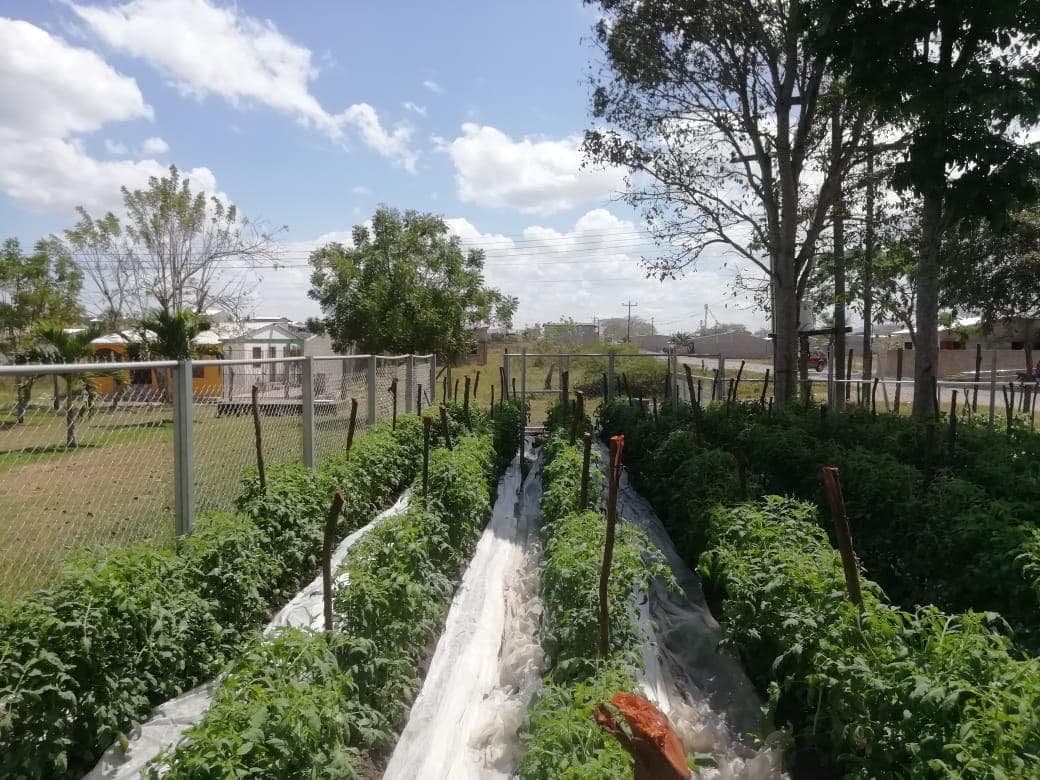NEW YORK — Five years ago the Olancho Aid Foundation (OAF) planted a community garden in response to Pope Francis’ encyclical Laudato si’. Today, what was intended as a gesture to amplify the pope’s message has become a lifeline to a region crippled by food insecurity due to the COVID-19 pandemic.
For 30 years, OAF has worked to provide clean water and education programming to the rural region of Olancho, the largest department within Honduras. Five years ago, the foundation overhauled its strategic planning using Laudato si’ as a framework for refocusing their mission.
Now, in the face of the pandemic, their staff of 125 workers are shifting gears for an all hands on deck approach to caring for their common home.
“Life is so closely linked to the land and the agricultural community that it’s just something we’ve naturally integrated into our work,” OAF president Susan Nedza told Crux, describing how the organization, which operates 29 clean water projects and runs several bilingual and special needs schools, is also now in the business of feeding the hungry — many of whom are the families of their students.
Once the country entered a national lockdown in mid-March, OAF’s schools all switched to an online education system, made possible by the fact that it manages its own fiber optic network.
Next came the challenge of food insecurity, both for the families in the region and the employees themselves, where the inability to travel from department to department within the country has led to a food supply shortage.
One of the school facilities was turned into a distribution center, making use of a bountiful harvest from the community garden of tomatoes, peppers, and other fresh produce — along with other staples that the OAF arranged to purchase from other suppliers — to distribute food to the community.

The process, Nedza says, is carefully choreographed, with the packaging and distribution being done in small, socially distanced groups. While the OAF has told employees they are not required to work during this time, the majority of them are showing up, donning new hats, and happily distributing food to approximately 175 families.
“For about three thousand U.S. dollars a week, we’re able to make sure every household is fed,” Nedza told Crux.
And unlike folks in the United States, where hoarding of toilet paper, flour, and other essential supplies, has been a constant problem, Nedza says that families are making do with the bare necessities.
“We’ve had families tell us that we’re giving them too much and sending food back so that we can reallocate it,” she said.
While the OAF is managed by a U.S. based board of trustees, its 125 employees are all Olancho locals, and the foundation works in partnership with the Catholic Diocese of Juticalpa.
The expansive diocese covers nearly 10,000 square miles with a population of just over half a million residents, cared for by 28 priests who oversee 15 parishes.
Nedeza says that the local bishop, José Bonello, a Franciscan, and the OAF team have effectively combined forces, dividing up the region to make sure that families are accounted for and that their needs are met.
As the department is surrounded by mountains and largely isolated, the first case of COVD-19 only reached it three weeks ago, meaning the economic disruption to the region is far more likely to outweigh the health devastation. Even so, due to fragile medical infrastructure of the country, the shutdown has required everyone to work together for the common good to contain the spread of the virus.
“We are not an island! We share the fate of an entire country and an entire planet. And now what?,” said the bishop in a statement earlier this month.
“It’s time to evaluate what’s done so far, rectify it, to decide and act better,” he said. “That is as a great family we must prevent with a greater dose of conviction, responsibility and collaboration, solidarity and respect.”

Nedza said that the spirit of cooperation and concern for the common good has been the guiding principle for OAF.
“You don’t see the controversial discourse like we have here in the United States, they’re just getting work done,” she told Crux.
She also said that she’s encouraged by the direct response of their U.S. based supporters who have contributed over $67 thousand dollars toward relief efforts in the region — what she views as a further sign of solidarity.
“Even though I’m isolated in a suburb in Chicago, I can participate in helping others, and it’s a good reminder that you can overcome the barriers of isolation and still have a significant impact at a distance,” she said.
Follow Christopher White on Twitter: @cwwhite212











